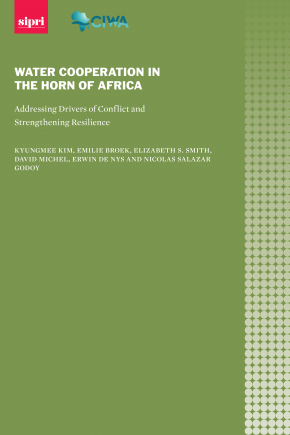Water Cooperation in the Horn of Africa: Addressing Drivers of Conflict and Strengthening Resilience

The Horn of Africa is a region exposed to the risks of water insecurity due to population growth and the impact of climate change. Growing water stress complicates many of the region’s social, political and economic difficulties, including weak governance and societal tensions between ethnic, regional or religious groups. The double impact of climate stress and violent conflict has led to increased social vulnerability and political fragility, which in turn affects the region’s prospects for adapting to changing environmental conditions. Cooperation over water resources as a policy option to address such challenges has been high on the research and policy agenda for decades. International and national policymakers are particularly interested in how different forms of water cooperation can mitigate the drivers of conflict, prevent the escalation of tensions, and build resilience to better respond to the impacts of climate change.
Previous research has identified that water cooperation is relevant both in different forms and at different levels, which calls for a better understanding of informal arrangements at the local level. This joint SIPRI–CIWA report aims to help to fill this research gap by exploring the role of local-level cooperative initiatives in improving water resource challenges in the Horn of Africa. The report draws on three illustrative case studies of transboundary basins in cross-border regions: the Sio–Malaba–Malakishi Basin; the Dawa River and Aquifer; and the Bahr el Ghazal Basin and the Baggara Basin Aquifer. In doing so, it provides lessons learned from existing cooperative initiatives.
1. Introduction
2. The Sio–Malaba–Malakisi Basin
3. The Dawa River and Aquifer
4. The Bahr el Ghazal Basin and the Baggara Basin Aquifer
5. Water cooperation and resilience: Constraints and entry points




